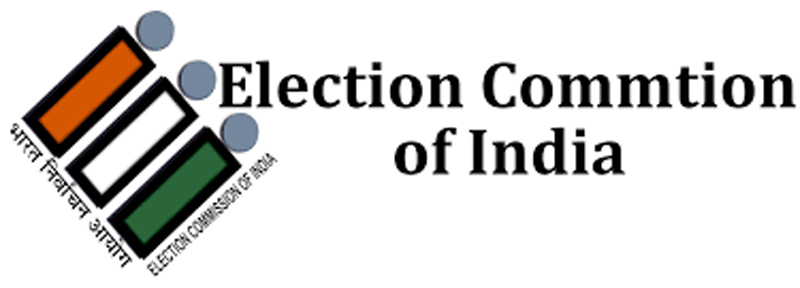J&K’s final electoral rolls published by CEO Office
Process of continuous updation to continue
Sanjeev Pargal
JAMMU, Nov 25: The Chief Electoral Officer (CEO), J&K’s office today published final electoral rolls for Jammu and Kashmir after five months long exercise leading to net addition of 7.72 lakh electorates and taking total number of voters in the Union Territory to 83.59 lakh.
“There has been a net increase of 7,72,872 voters in the final electoral rolls which accounts for 10.19 net increase of registered electorates over the draft rolls,” the data released by the CEO’s Office J&K here this evening revealed.
Excelsior had today exclusively reported that final electoral rolls of Jammu and Kashmir will be published today after five months long revision and that voters are expected to go up by seven lakh while total voters are expected to touch around 83 lakh.
“The final electoral rolls have 83,59,771 electors. Out of them, 42,91,687 are male, 40,67,900 are females and 184 are Third Gender. The Electoral Population Ratio has increased from 0.52 to 0.58 during the Special Summary Revision. Gender ratio of the final electoral rolls has increased from 921 to 948,” the data revealed.
It said this was for the first time in the history of Jammu and Kashmir that more than 11 lakh names were included in a single Special Summary Revision period. The names included corrections, deletions on different accounts etc.
“Overall net addition of 7,72,872 electorates which is more than 10 percent of the draft voters is a milestone as the best figure till date which even in the election year Special Summary Revisions was less than two lakh,” the Office of CEO J&K said.
Jammu and Kashmir earlier had 76 lakh voters when last revision was carried out in 2018. This was after three years that Special Summary Revision was taken up. The revision couldn’t be held in 2019 on account of August 5, 2019 decisions of the Central Government scrapping special status of erstwhile State and bifurcating it into two UTs of J&K and Ladakh. The revision was not taken up in 2020 and 2021 because of the ongoing Delimitation Commission exercise.
The Office of CEO J&K, however, said that though the Special Summary Revision-2022 has culminated with publication of final electoral rolls today, the process of continuous updation shall, however, continue and any eligible citizen who has been left of the electoral rolls can apply through any of the registration modes including online through NVSP portal, Voter Helpline App, Voter Portal or Offline by making an application to the concerned ERO.
“With the implementation of four qualifying dates as part of the Commission’s electoral reforms, the qualifying date would get updated to Ist January 2023, after 31st December, 2022, paving way for those young citizens to get registered, who have attained the qualifying age of 18 years between Ist October 2022 and Ist January 2023,” the CEO office said.
During the period of Summary Revision, a record 11,40,768 claims were received through Form 6 for inclusion of names in the electoral rolls across the Union Territory. Out of these, 11,28,672 claims were accepted and only 12,096 claims were rejected. This included 3,01,961 claims of inclusion in the age group of 18-19.
A total of 4,12,157 requests for deletion were received, out of which 3,58,222 were accepted and 53,935 were rejected.
There has been an addition of 613 new polling stations in the Union Territory. The gender ratio of the final electoral Roll has increased from 921 to 948.
The CEO Office said that gender ratio has shown a remarkable increase by 27 points and stands at 948, which is much above the Census gender ratio of Jammu and Kashmir.
Overall there has been a six percentage points increase in the elector-population ratio to 58.
Photo coverage in the electoral rolls remained at 99.99 per cent showing that no new entry without a proper photograph has been allowed.
There are 57,253 marked People with Disabilities (PwD) electors in the final electoral roll, an increase of 46 per cent over the draft roll.
The emphasis of the Election Commission led by Chief Election Commissioner Rajiv Kumar on the registration of young voters as well as the marginalized sections of society, including persons with disabilities, third gender, women, etc., has yielded positive results, the Office of CEO J&K said.
Claims and objections were accepted from September 15 to October 25, i.e. for a period of 40 days. This was followed by a period of 15 days till November 10 for the disposal of all claims and objections
Though publication of final electoral rolls is mandatory before conduct of Assembly elections, there are no chances of polls this year as harsh winter season has already set-in and will last till March.
“The Election Commission can take a call in March on when to go for Assembly elections in Jammu and Kashmir. Though conduct of polls is domain of the Election Commission, it has to take into account security situation in the UT like J&K before taking a decision on the polls. The Commission can visit the UT or send its team and take reports from the Union Home Ministry and the J&K Government on whether security scenario was conducive for holding the Assembly elections or not, the sources said.


